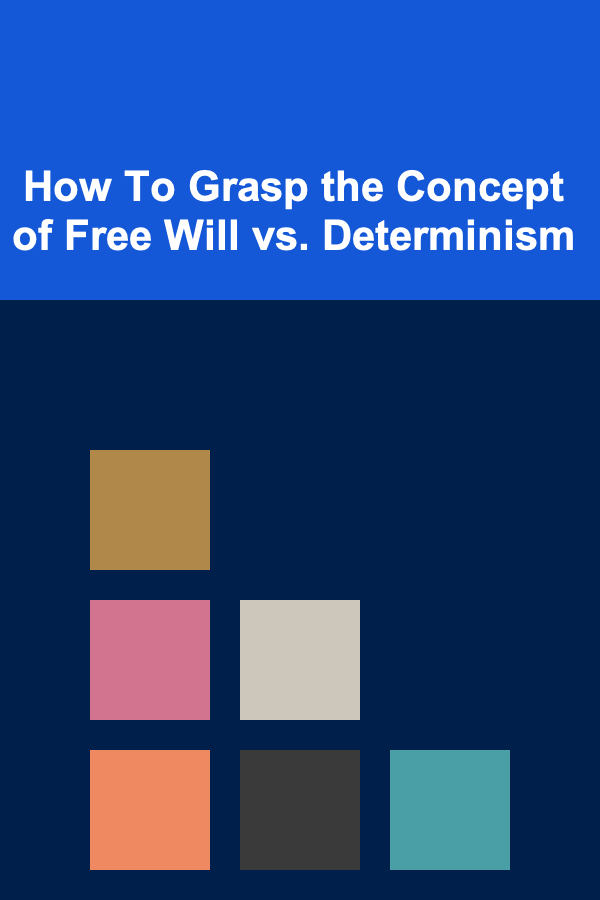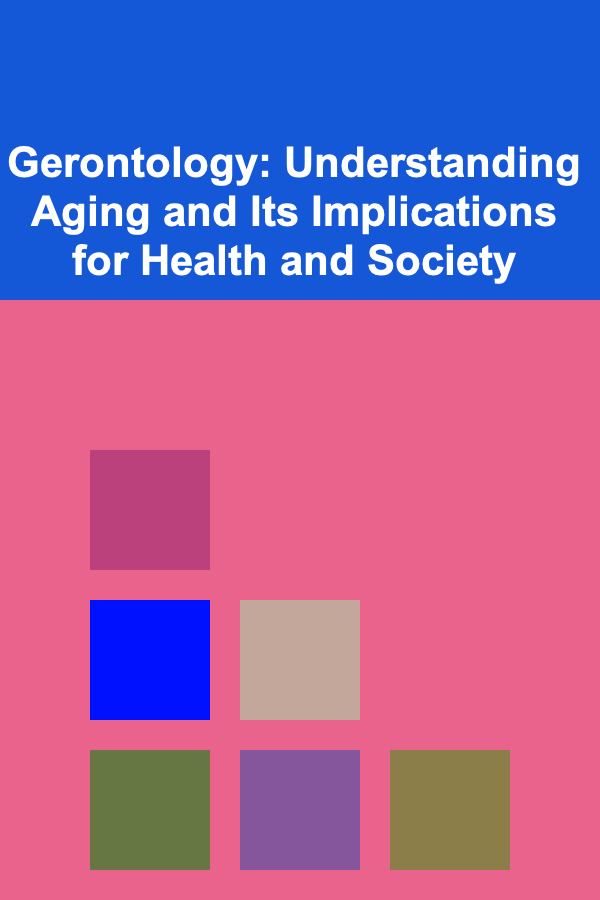
How To Grasp the Concept of Free Will vs. Determinism
ebook include PDF & Audio bundle (Micro Guide)
$12.99$5.99
Limited Time Offer! Order within the next:

The debate between free will and determinism has intrigued philosophers, scientists, and thinkers for centuries. This discussion explores fundamental questions about human nature, choice, morality, and the universe itself. The tension between the belief that humans have control over their actions (free will) and the idea that our actions are determined by prior causes or laws (determinism) is one of the most profound in philosophical thought. In this article, we will examine both concepts, trace their origins, and explore how they have evolved across various intellectual traditions.
The Basics of Free Will and Determinism
Free Will: The Power of Choice
Free will refers to the capacity of individuals to make choices that are not pre-determined by external causes or influences. It embodies the idea that humans can act independently, exercise personal agency, and control their actions based on rational deliberation. Free will has significant implications for moral responsibility: if individuals can choose freely, they can be held accountable for their actions.
The concept of free will has roots in many philosophical and religious traditions. In Western philosophy, it was championed by figures such as René Descartes, who believed in the dualism of mind and body, and Immanuel Kant, who argued that moral actions require freedom of choice. In religious contexts, free will is often seen as a gift from God, granting humans the ability to choose between good and evil.
Determinism: The Influence of Cause and Effect
Determinism, on the other hand, suggests that every event, including human actions, is caused by preceding events according to natural laws or causal chains. In this view, the future is determined by the present and past, leaving no room for randomness or personal choice. In other words, if we had enough information about the current state of the universe, we could predict every action and event that will occur.
There are different forms of determinism, including:
- Causal Determinism: The belief that every event or state of affairs is the result of previous events in accordance with universal laws.
- Biological Determinism: The idea that human behavior is shaped by genetic and biological factors.
- Psychological Determinism: The view that human actions are determined by unconscious desires, mental conditioning, or learned behavior.
The Dichotomy: Can They Coexist?
The central question of the free will vs. determinism debate is whether the two concepts can coexist. At first glance, they appear to be in direct opposition: if every action is determined by prior causes, how can we be free to choose? And if we are free to choose, how can everything in the universe be governed by determinism?
The conflict is not just a theoretical one; it has profound implications for ethics, law, and society. For example, if we have no free will, can we hold people accountable for their actions? Alternatively, if we do have free will, how do we reconcile that with the scientific understanding of cause and effect?
Historical Background
The tension between free will and determinism is not new. In fact, it has been central to Western philosophy since its inception. Let's look at some of the historical developments that have shaped our understanding of these concepts.
Ancient Greece: Early Thoughts on Free Will and Determinism
The concept of free will and determinism can be traced back to ancient Greek philosophy. Philosophers like Socrates and Aristotle debated the nature of human action. Socrates argued that knowledge leads to virtuous actions, implying that humans can freely choose to act morally. However, Aristotle suggested that while humans have the capacity for rational action, their choices are influenced by circumstances, biology, and other external factors.
The Stoics, on the other hand, believed in a form of determinism. They argued that everything happens according to divine reason (logos) and that humans must accept their fate. This form of determinism was compatible with their moral philosophy, which emphasized living in accordance with nature.
Medieval and Early Modern Views: Theological Determinism
During the Middle Ages, the debate was heavily influenced by religious doctrines. In Christian theology, free will was seen as a gift from God, allowing humans to choose between good and evil. The problem of free will vs. divine omniscience (God's all-knowing nature) became a central issue in philosophy and theology.
For example, St. Augustine of Hippo wrestled with the tension between human free will and divine providence. He ultimately concluded that free will is necessary for moral responsibility but also that God's foreknowledge does not necessarily negate human freedom.
The rise of early modern philosophy brought a renewed interest in these issues. René Descartes, with his philosophy of mind-body dualism, championed the idea of free will. However, others, such as Baruch Spinoza, argued that all actions, including human choices, are determined by natural laws, with no room for free will.
The Enlightenment and Beyond: Scientific Determinism
The Enlightenment brought a more secular approach to the free will vs. determinism debate, influenced by the rise of scientific thought. Thinkers like John Locke and David Hume began to question whether humans could be truly free, or if their actions were determined by external causes.
One of the most significant developments in this debate came with the rise of scientific determinism, especially in the works of Isaac Newton. Newton's laws of motion and gravitation suggested that the universe operates according to deterministic laws, raising questions about human freedom in a mechanistic universe.
The 19th century saw the rise of evolutionary biology, with Charles Darwin's theory of natural selection further challenging the notion of free will. According to Darwin, human behavior, like that of other species, is shaped by evolutionary forces and biological instincts.
The Modern Debate
Determinism in the Light of Physics
Modern physics has added new layers of complexity to the debate. Classical mechanics, based on Newtonian physics, presents a deterministic universe where every event is a consequence of prior causes. However, quantum mechanics introduced a probabilistic view of the universe, where events at the subatomic level are governed by probabilities rather than deterministic laws.
This raised the question: if the universe is fundamentally probabilistic, does that leave room for free will? Some philosophers argue that if everything is determined by the laws of quantum mechanics, human freedom is an illusion. Others propose that quantum indeterminacy could provide a mechanism for free will, allowing for events to occur that are not strictly determined by prior causes.
Neuroscience and Free Will
In recent decades, advancements in neuroscience have brought new insights into the debate. Studies of brain activity have shown that the brain seems to make decisions before we are consciously aware of them. This has led some scientists to argue that free will is an illusion, and that our actions are the result of unconscious neural processes.
For example, experiments by Benjamin Libet in the 1980s demonstrated that brain activity related to a decision occurs several milliseconds before a person consciously decides to act. This finding has been interpreted by some as evidence that free will is an illusion, and that our choices are determined by brain activity outside of our conscious control.
Philosophical Responses to Neuroscientific Findings
Philosophers have responded in various ways to the findings of neuroscience. Some, like Daniel Dennett, argue that free will is compatible with the findings of neuroscience, suggesting that even if brain activity precedes conscious decision-making, humans still possess a form of free will that allows us to reflect on our decisions and make meaningful choices.
Others, like Sam Harris, take a more deterministic view, claiming that free will is incompatible with our understanding of neuroscience and that our actions are determined by factors beyond our control, including genetics, upbringing, and brain chemistry.
Compatibilism: Bridging the Gap
For many thinkers, the free will vs. determinism debate is not an either-or proposition. Compatibilism, the view that free will and determinism can coexist, offers a middle ground. Compatibilists argue that even if our actions are determined by prior causes, we can still be free in the sense that we can act according to our desires and rational deliberations.
One well-known compatibilist is philosopher David Hume, who argued that freedom is not about being free from causal determinism but about being free from external constraints and coercion. According to Hume, as long as our actions align with our desires and rational intentions, we are free, even if those desires and intentions are shaped by prior causes.
Modern Compatibilism
Contemporary compatibilists, such as Harry Frankfurt and Daniel Dennett, have developed further arguments to defend the compatibility of free will and determinism. Frankfurt's famous "Frankfurt cases" illustrate that we can still be morally responsible even if our actions are determined by prior causes, as long as we could have acted differently in a relevant sense.
In Dennett's view, free will is not about ultimate metaphysical freedom but about the ability to make decisions based on reasoning, reflection, and a sense of self. For Dennett, free will is compatible with a deterministic universe because it refers to the capacity for self-control and rational decision-making, even if the underlying causes of those decisions are determined.
Implications of the Debate
Moral Responsibility
One of the most significant consequences of the free will vs. determinism debate is its implications for moral responsibility. If we do not have free will, can we still be held morally accountable for our actions? If our actions are determined by prior causes, it may seem unjust to punish or reward individuals for behavior they could not have avoided.
On the other hand, if we have free will, it is possible to hold individuals morally responsible for their actions. This is why the concept of free will is so central to our legal systems, which rely on the idea that people are capable of making choices and should be held accountable for those choices.
Social and Political Implications
The debate between free will and determinism also has social and political implications. If determinism is true, it may challenge the fairness of social systems that place blame on individuals for their circumstances. On the other hand, if free will is true, individuals may be seen as fully responsible for their actions, regardless of their social or economic background.
The Quest for Meaning
Ultimately, the free will vs. determinism debate touches on questions of meaning and purpose in life. If our actions are determined by prior causes, does life lose its sense of significance? Or, if we are free to choose, does that provide us with a deeper sense of purpose and autonomy?
Conclusion
The debate between free will and determinism is a profound and complex one that raises essential questions about the nature of human freedom, responsibility, and the universe. While the conflict between these two concepts may seem intractable, modern thinkers continue to explore ways in which they can coexist, and how we might understand free will in a determined world.
Whether one leans toward determinism, embraces the idea of free will, or adopts a compatibilist stance, the debate offers valuable insights into our understanding of human nature and the world around us.
Other Products

Beginner Guide: How to Learn a New Language
Read More
Gerontology: Understanding Aging and Its Implications for Health and Society
Read More
How to Incorporate Seasonal Colors into Your Holiday Decorations
Read More
How to Keep Your Home's Water Pressure Consistent
Read More
How to Set Up a Home Scavenger Hunt for Kids
Read More